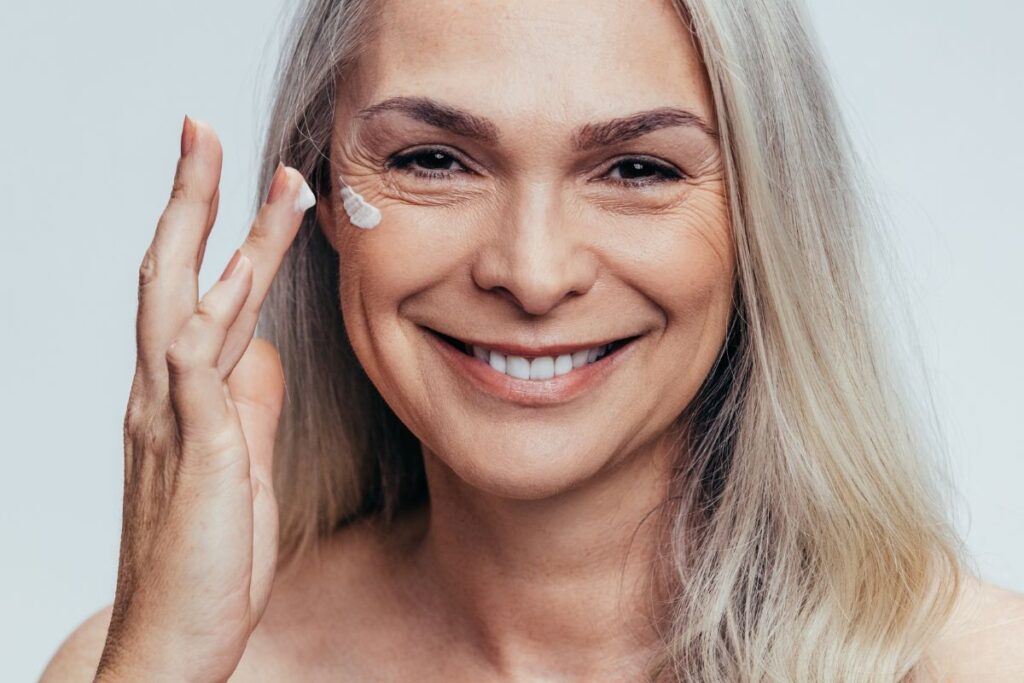Are you tired of noticing fine lines and wrinkles on your skin? Are you unsure whether those costly anti-aging treatments can live up to the hype? We will expose the proof and risks of these popular products as we delve into the reality behind the magic bottles.
What Are Anti-Aging Creams?
Anti-aging creams claim to reduce wrinkles, tighten skin, and reverse the signs of aging. These creams often include ingredients like retinol, hyaluronic acid, vitamin C, and peptides, all of which have shown different degrees of effectiveness in improving skin health and appearance.
What’s the Evidence Behind Anti-Aging Creams?
While no product can stop aging, several studies support the effectiveness of key ingredients found in anti-ageing creams:
1. Retinol (Vitamin A):
Retinol is one of the most well-researched ingredients in anti-ageing skincare. It helps increase cell turnover, stimulates collagen production, and lessens the occurrence of wrinkles and fine lines. According to a study, retinoids are one of the most effective treatments for photoaging (sun damage).
2. Hyaluronic Acid:
As a humectant, hyaluronic acid attracts moisture to the skin, plumping it up for a while and making wrinkles less noticeable. A study found that topical hyaluronic acid can greatly increase the suppleness and moisture of the skin.
3. Vitamin C:
Its antioxidant properties can brighten and lighten skin pigmentation. Research says that vitamin C can help in the reduction of dark spots and encourage the formation of collagen, both of which result in tighter skin.
4. Peptides:
According to a study, peptides can improve skin texture, encourage the production of collagen, and make the skin supple while also reducing wrinkles.
Adverse Effects of Anti-Aging Products:
Although these products have immense benefits, they do pose some risks, mostly when you are using them too much or not as per the instructions.
1. Retinol:
Redness, dryness, and irritation of the skin are possible side effects of retinol, particularly in the early phases of treatment. Overuse may result in peeling and sun sensitivity. Apply sunscreen and start slow with products that include retinol.
2. Vitamin C:
While Vitamin C is generally safe, it sometimes can irritate skin, mainly if you have sensitive skin. Another stability issue is that vitamin C oxidizes easily in the presence of oxygen and light, which reduces the effectiveness of some serums.
3. Hyaluronic Acid:
Although it is harmless for most people, if the product is too heavy for some skin types, it can sometimes end up in breakouts or skin irritation. Selecting the right composition for your skin’s needs is important.
Frequently Asked Questions
Can anti-aging creams reverse ageing?
Anti-aging creams can help minimize the appearance of wrinkles, fine lines, and other symptoms of aging by using proven components like vitamin C, retinol, and hyaluronic acid on a regular basis. However, they cannot reverse the effects of aging.
How long does it take for anti-ageing creams to work?
Results can take 3 to 6 months to become noticeable, especially with ingredients like retinol and vitamin C.
Are expensive anti-ageing creams better?
Not necessarily. Many affordable creams with ingredients like retinol and hyaluronic acid can work equally as well as high-end brands.
How HealthPil Can Help:
If you’re unsure which anti-ageing products are right for you, HealthPil connects you with experienced dermatologists who can help you choose effective, safe skincare products tailored to your skin’s needs.
Disclaimer:
This article is for informational purposes only. Always consult a healthcare provider before you think of starting any new skincare treatments.

